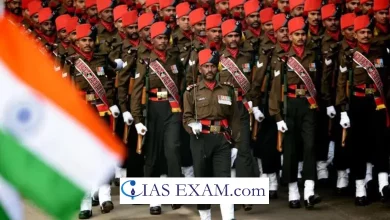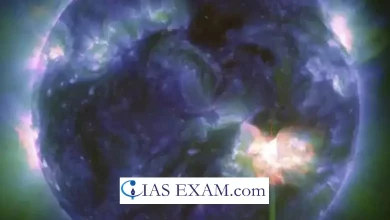Daily Current Affairs for UPSC
Challenging the Special Marriage Act, 1954
Topic- Laws and governance [GS Paper-2]
Context- Recently the Supreme Court dismissed a writ petition challenging provisions of the Special Marriage Act (SMA), 1954 requiring couples to give a notice declaring their intent to marry 30 days before their marriage.
Key Highlights-
- Recently the Supreme Court dismissed a writ petition which was challenging the Constitutional validity of certain provisions of the Special Marriage Act under which couples seek refuge for inter-faith and inter-caste marriages.
- The petition called these provisions violative of the right to privacy guaranteed under Article 21 of the Constitution as they require couples to give a notice of 30 days before the date of marriage inviting objections from the public.
- It also says that the provisions contravene Article 14 on prohibition of discrimination on grounds of religion, race, caste and sex as well as Article 15 on right to equality as these requirements are absent in personal laws.
Provisions of the Special Marriage Act-
- The Special Marriage Act is a central legislation made to validate and register interreligious and inter-caste marriages in India.
- It allows two individuals to solemnise their marriage through a civil contract. No religious formalities are needed to be carried out under the Act.
- Section 5 of the Act requires couples getting married under it to give a notice to the Marriage Officer 30 days before the date of marriage.
- Section 6 requires such a notice to be then entered into the Marriage Notice Book maintained by the Marriage Officer, which can be inspected by “any person desirous of inspecting the same”.
- Section 7 provides the process for making an objection such as if either party has a living spouse, is incapable of giving consent due to “unsoundness of mind” or is suffering from mental disorder resulting in the person being unfit for marriage or procreation.
- Section 8 specifies the inquiry procedure to be followed after an objection has been submitted.
Objections put forth by the petition-
- The petition says the valid provisions, by throwing the personal information of the individuals open to public scrutiny, seriously damage one’s right to have control over her or his personal information and its accessibility.
- Also by making the personal details of the couple accessible to everyone, the very right of the couple to be the decision makers of their marriage is being hampered by the state.
Need for the changes in the Special Marriage Act-
- The public notices sent by the authorities have been used by anti-social elements to harass couples getting married.
- There have been instances where marriage officers have gone over and beyond the law and sent such notices to the parents of the couple leading to certain disturbances in families.
- In certain States, couples have to seek a no-objection certificate from their parents.
- For example the Haryana government has laid down 16 prerequisites which ask couples to issue a notice in a newspaper and that such notices be sent to their parents.
- The Maharashtra Department of Registration and Stamps publicly shares the details of couples marrying under SMA on its website and so does the Kerala government, which allows communal elements to access personal details and threaten and harass couples.
- Many also complain about the behaviour of the staff at the SDM’s office who often delete or delay applications and dissuade couples from marrying under SMA and ask them to convert at an Arya Samaj temple.
- With as many as 11 States passing anti-conversion (or so called love-jihad) laws, parents and the State are now armed to punish and harass such couples.





.png)



